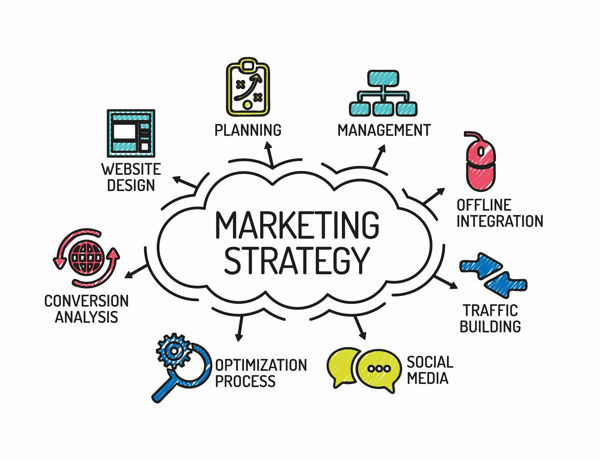Presented by BetterHelp.
Have you ever gone through hard times? Maybe you’ve experienced extreme financial stress, a terrible car accident, or a bad breakup. When life gets hard, giving up always feels like the best option. However, giving up is a sign of no resilience.
Our resilience is what helps us overcome hard times. Discover more about resilience, why it is important, and how you can improve it. By improving your resilience, you are more likely to be a happier and healthier person. Your mental health is dependent on your resilience!
What is Resilience?
According to the American Psychological Association, “Resilience is the process and outcome of successfully adapting to difficult or challenging life experiences, especially through mental, emotional, and behavioral flexibility and adjustment to external and internal demands.”
In other words, a person’s ability to cope and overcome various life circumstances determines their resilience. Someone with extreme stability can quickly bounce back after a tough time. However, someone with little to no resilience may find it difficult to overcome these moments.
As you can imagine, a person’s resilient nature is directly tied to the stability of their mental health. This is why there are professional resources dedicated to understanding more about resilience, its effect on our mental health, and how people can train themselves to be stronger.
Someone with no resilience is more likely to experience mental health disorders. The most common mental health disorders due to little resilience are chronic stress, anxiety, and depression. Therefore, people with a good resilient nature can better cope with daily stress and anxiety.
How to Improve Your Resilience
Make Meaningful Relationships
One of the best ways to improve your resilience is to create a sound support group. Your support group could be close friends, family members, loved ones, partners, therapists, and others. When you develop meaningful relationships, you create a bond with others that can give you encouragement and guidance. Meaningful relationships also give you a chance to become more emotionally and mentally strong. When you are surrounded by people who care for you, you become braver and more aware of your capabilities. Creating meaningful relationships in your life is a great way to improve your resilience.
Invest in Yourself
When a person invests in themselves, they are telling themselves they are worth the effort! You must create this type of relationship with yourself. One way to invest in yourself is to become better equipped for difficult moments. For example, take time out of your week to engage in yoga. With yoga, you can train your body to calm down on command. This is a valuable resource to have during times of stress and anxiety. Another way to invest in yourself is by honing your problem-solving abilities. Very Well Mind suggests that individuals practice solving everyday problems logically. The better you are at solving problems, the more prepared you are for future issues.
Accept the Good and the Bad, but Remain Optimistic
When things get tough, it can be tempting to think only of the negative outcomes. It is easy to focus on the bad and lose hope during these times. Nevertheless, people must remain optimistic! Optimism is one of the best weapons against hard times. It may not solve the problem, but it helps keep spirits lifted and mental health concerns to a minimum. If a big problem occurs in your life, consider accepting the situation as it is and move forward with the hope that it will be fixed. When you go into a problem with the idea that you can work it out, you are more likely to do that!
Regularly Set Goals and Find Your Reason Why
Another way to improve your resilience is by creating a reason for succeeding. In other words, regularly set goals in your life. When we set goals, we give ourselves something to strive towards. For example, someone sets a goal to learn how to code by the end of the year. This goal requires them to put time aside to work on it, and when things get tough, they have to work on it anyways. Resilience works similarly. If times get difficult, you must have a reason to overcome them or bounce back from them. Your reasons could be for the happiness of your family, the success of your new business, or any other important fixture in your life.
Celebrate Your Changes
Celebrating your changes is a great way to boost your resilience. When we celebrate changes in our lives, we acknowledge things that have gone right and things that haven’t gone right. For instance, imagine you failed a college course because you partied too much. Instead of admitting defeat and dropping out of college, you show up next semester and pass the class! While this adventure did not initially go how you had hoped, you learned from your experience and used this opportunity to become a better student. You must treat these moments in life as a chance to learn and celebrate your growth.
Become More Aware
Similar to investing in yourself, you must also become more aware of your inner self. Becoming more self-aware allows you to understand more about your strengths and weaknesses. This is a great asset when you are learning to be more resilient. Someone who regularly evaluates their emotions and goals is someone who is constantly growing. When you become more aware of your feelings and thoughts, you are better equipped to manage stress, anxiety, and other disrupting notions. You can become more self-aware by practicing meditation, journaling, prayer, and any space that allows you to reflect.
Develop Self-Confidence and Self-Respect
Lastly, developing self-confidence and self-respect can also help you improve your resilient nature. Our self-confidence allows us to get up every morning and try something new. If you lack confidence, it may feel laborious to overcome hardships. People with low self-esteem may believe that they will never overcome hard times. However, someone with self-confidence will know that they are worthy of success! Similarly, self-respect is giving yourself space to succeed and fail. When you respect yourself, you will be more willing to adapt to tough situations.




Recent Comments